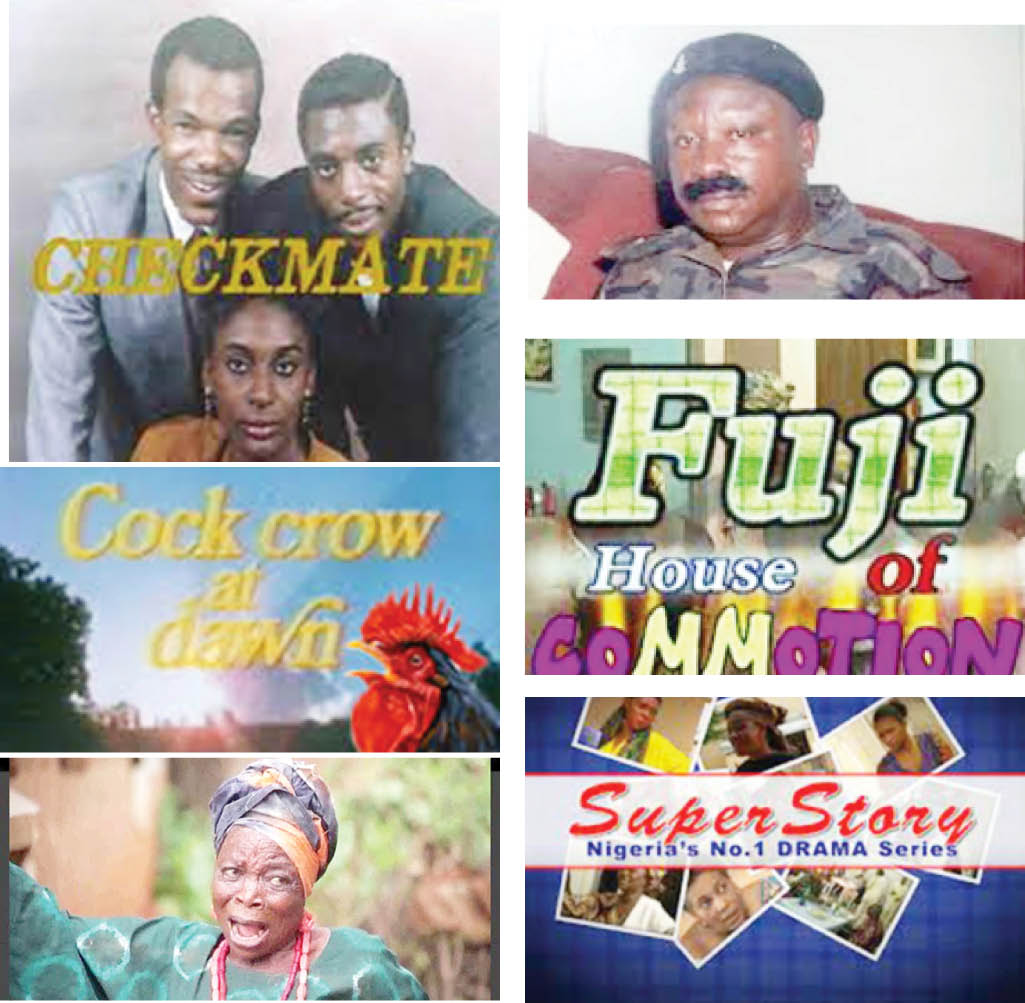Nigerian TV shows that rocked the 90s and early 2000
Over time, the Nigerian entertainment industry has been able to roll out quality movies and series that have engaged audience, created conversations and taught moral lessons. Some of these TV shows stood the test of time and are still talked about. Daily Trust Saturday takes a walk down memory lane on some shows that rocked […]

Nigerian TV shows that rocked the 90s and early 2000
Over time, the Nigerian entertainment industry has been able to roll out quality movies and series that have engaged audience, created conversations and taught moral lessons. Some of these TV shows stood the test of time and are still talked about. Daily Trust Saturday takes a walk down memory lane on some shows that rocked the 90s and early 2000.
Checkmate (1991 -1994)
The Sunday night soap had Nigerians enthralled for three years. Checkmate was the story of the noble Haatrope family striving to withstand attacks from adversaries both inside and outside the family, created and written by the late Amaka Igwe. Many people were acquainted to Ego Boyo, the late Francis Agu, Norbert Young, and the charismatic Richard Mofe Damijo, who played Segun Kadiri, thanks to the soap drama. Checkmate also addressed societal concerns such as polygamy and cultism.
- Police neutralise bandit, recover 50 rustled cows in Katsina
- Nigeria needs N147b to avert food crisis in North East – UN
Things fall apart (1987)
This is another NTA classic television show. Chinua Achebe’s classic work was adapted by the Nigerian Television Authority in 1987. Pete Edochie portrayed Okonkwo, the main character in the film. Also featured were the late Justus Esiri, Sam Loco Efe and Nkem Owoh. The NTA adaptation is one of the NTA’s best moments in terms of creating a faultless television show that has appealed to multiple generations.
The Village Headmaster (1968-1988)
The Village Headmaster is one of Nigeria’s most well-known television shows. It was the longest-running series on the National Television Authority, airing for two decades. The late Justus Esiri, Dejumo Lewis, Funsho Adeolu, and Enebeli Elebuwa were among the stars of The Village Headmaster. The TV show centred on “trans harmony, problem-solving and engagement in public issues, health education, and family fun,” among other topics.
Tales by Moonlight (1984)
The NTA developed a children’s show that became a smash hit. Victoria Ezeokoli, then NTA’s Director of Programmes, produced Tales by Moonlight. The 30-minute show was created to compete with Sesame Street, a popular children’s television show in the United States. Tales by Moonlight was created with the intention of spreading African folktales.
The show ended in the 1990s after a long run. It did, however, return to the airwaves in the 2000s, although with little impact.
Cock crow at dawn (1980s)
Cock Crow at Dawn was a weekly television show that aired on NTA and was sponsored by the Union Bank of Africa. Its goal was to raise awareness of farming as a viable investment among Nigerians. Peter Igho was the one who came up with the idea and wrote the script. Bongos Ikwue composed the theme song. Cock Crow at Dawn was produced by NTA Jos, which was responsible for a slew of high-quality television productions in the 1980s. Before it was cancelled, Cock Crow at Dawn aired 104 episodes.
Koto Orun (90s)
This Yekini Ajileye-produced TV series was a must-see for anyone in the South-West in the 1990s. It was a great way to spend a Sunday night. The series focused on the conflict between good and evil powers in a precolonial hamlet. Koto Orun is one of the best TV programs Nigeria has ever created, with intriguing characters and compelling plots.
Fuji house of commotion (2000s)
The Amaka Igwe directed and produced comedy series, which was an offshoot of Checkmate, delightfully depicted the unusual experience of living inside a polygamous home. This series was one of the best comedies on Nigerian television thanks to the hilarious skills of Kunle Bamtefa, Ngozi Nwosu, and the supporting cast.
Samanja (1973 – 1980)
The funny comedy show first aired on NTA Kaduna and afterwards on Radio Kaduna in 1973. Its rising popularity earned it a spot on national television. To accommodate a wider audience, the format was adjusted. The show’s language shifted from Hausa to pidgin. Veteran actor Usman Baba Pategi played Sgt Samanja, a hilarious soldier with various rib-cracking antics, in the film set in a military barracks.
I Need to Know (1997-2002)
The TV series, which starred Nigerian A-list actress Funke Akindele and was sponsored by the United Nations Population Fund, was an educational show.
The TV show followed the lives of seven secondary school kids as they navigated their adolescent years. The show’s main subjects were HIV/AIDS and teenage pregnancy.
Kalamashaka composed the highly popular theme song. I Need To Know was a TV show aimed specifically at teenagers.
